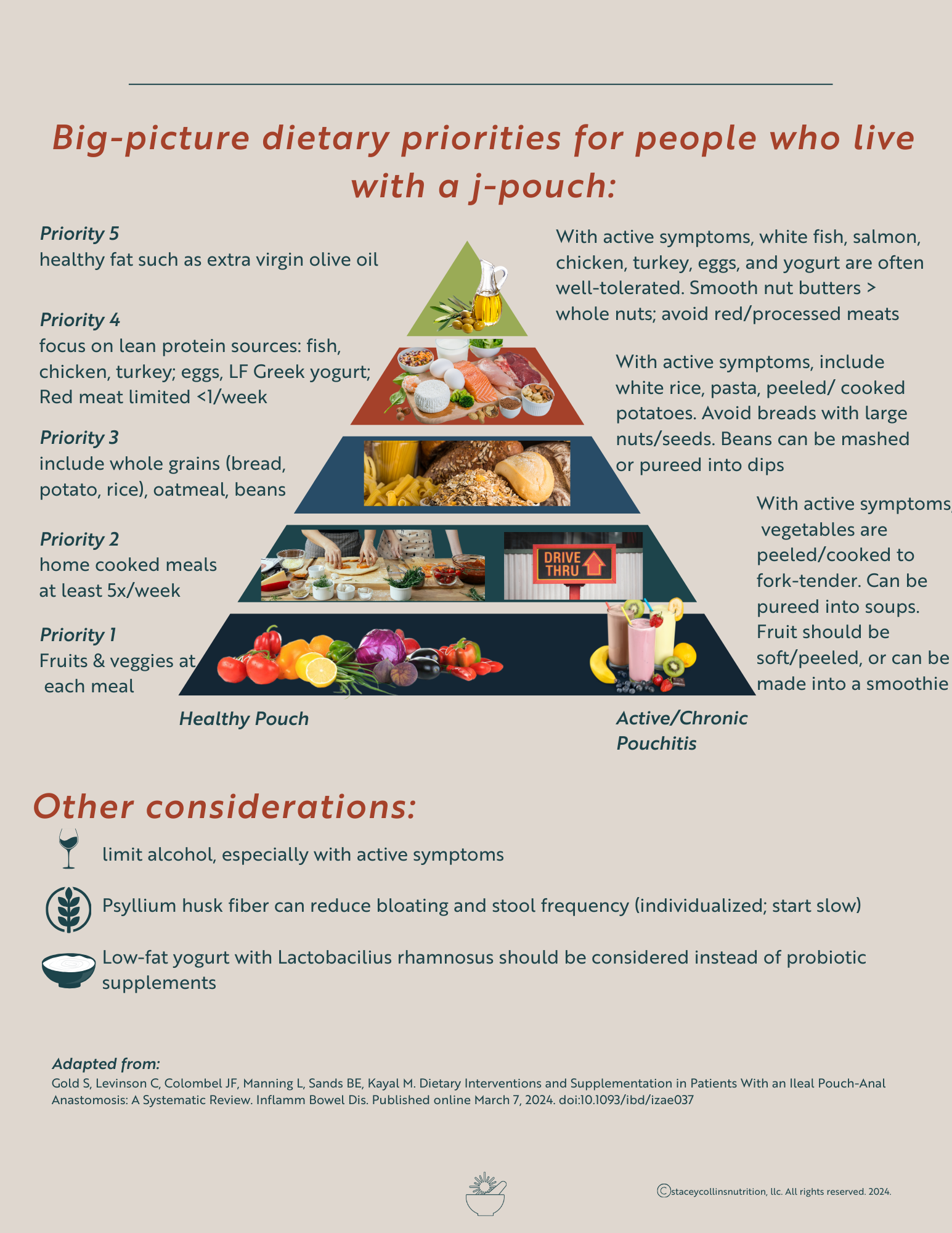Does Diet Matter for J-Pouch Health?
The short answer: YES!
And diet and nutrition, especially for j-pouch health, require personalization. A review recently published in 2024 included more than 1100 people with a j-pouch from ulcerative colitis (UC) from 24 studies. The review concluded, “it is unlikely that there will be a single diet” for people who live with a j-pouch and that nutrition recommendations should be based on “j-pouch phenotype, microbial signatures, and pouch activity will be incredibly important”.
Nonetheless, j-pouch is starting to gain traction in nutrition research. So…GOOD NEWS:
If you’ve ever wondered, “What can I eat with a J-pouch?” …
… allow me to introduce you to the first-ever j-pouch food pyramid, imagined by the brains at Mount Sinai in New York:
How did the researchers arrive at these conclusions?
Fruit intake is associated with a decreased risk for pouchitis by modifying the microbiome in a way that appears to be protective
Frozen, fresh, or even canned fruit (with no sugar added) varieties can be added into the diet to increase fruit intake
Out of 10 studies involving probiotics, only 3 demonstrated clinical improvement; 2 had mixed results. You can read more about probiotic use for IBD here.
Why does this matter?
Even though having a j-pouch can improve one’s quality of life, it is not without complications, including pouchitis
“Diet may have a significant impact on pouch function and even the development of pouchitis by virtue of its impact on motility and the microbiome”
Key takeaways:
Diet CAN make impactful differences for the health of your j-pouch.
A “Mediterranean-style” diet is a useful pattern of eating to strive for consistently over time.
Note: I put “Mediterranean” in quotation marks, because “Mediterranean” isn’t necessarily inclusive of your culture, and that truly matters.
Aim for a diet rich in color: fruits, vegetables, and whole grains (in textures/volumes/preparations that you tolerate), olive oil, and protein sources from lean poultry and fatty fish, like salmon.
Actionable: Be intentional about fruit! If you need one good place to start: add a small side of fruit to your meals, working up to ~1 cup as your level of comfort and safety allows (see pyramid for texture modification examples if you are experiencing active symptoms).
If you’d like to go the extra mile and gain diet personalization through a thorough nutrition assessment, reach out to me about working together one-on-one for your j-pouch nutrition care!

